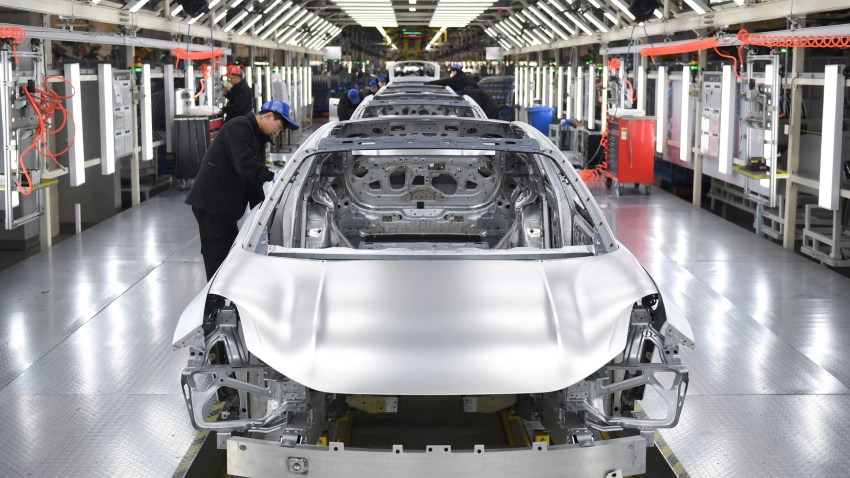Last week, the administration of U.S. President Joe Biden announced it was opening an investigation into the national security threats posed by so-called connected, or digitally networked, vehicles that use Chinese-made technology. The executive order taken by the Commerce Department’s Bureau of Industry and Security, or BIS, focuses on “protecting domestic information and communications technology and services supply chains.” But it opens with an explicit mention of efforts by Chinese automakers to flood the U.S. and global markets, sending a clear signal that the White House’s intention is to keep Chinese vehicles—and particularly electric vehicles, or EVs—from undermining the U.S. auto industry.
Administration officials noted that China has already taken similar measures against U.S. products, banning Teslas from entering into some government grounds and prohibiting government and Communist Party officials from using iPhones. Biden’s latest move ratchets up the pressure to “derisk” the two countries’ economies in key sectors, including the automotive industry as it makes the monumental transition to electrification.
The attempt to limit the access of Chinese EVs to the U.S. market, as well as the European Union’s decision last year to investigate Chinese EVs for illegal subsidies, is seen in China as naked protectionism, a political decision to harm China’s most successful manufacturing miracle and one of the few bright spots in the Chinese economy today. China’s early decision to focus on the transition from internal combustion engines to electric vehicles is now paying off in spades, and other countries are scrambling to defend their own industries against cheap and good Chinese EVs.

